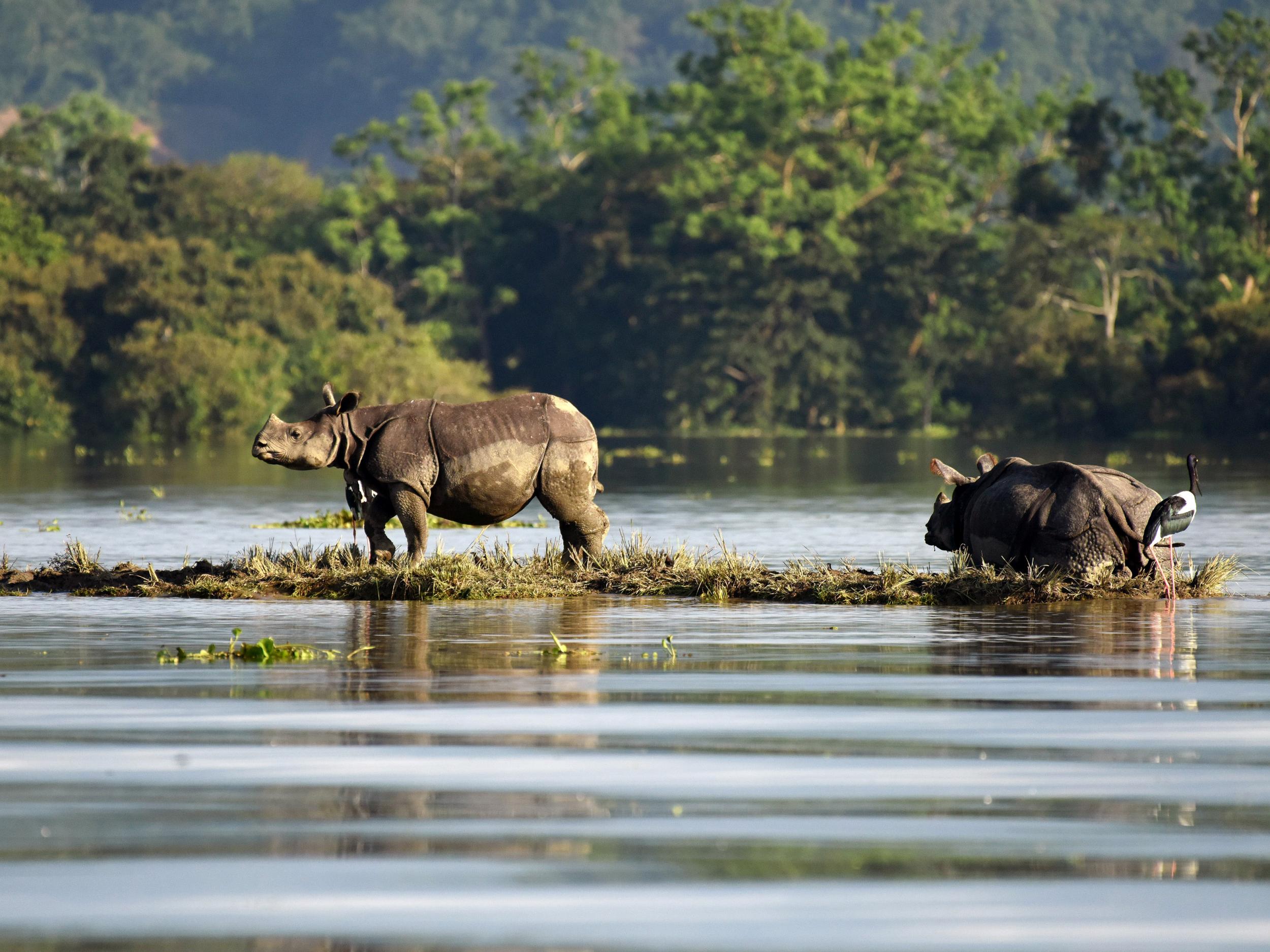Flooding in northern India leaves 40 dead and rare one-horned rhinos stranded
Brahmaputra river bursts banks in state of Assam and causes widespread devastation, swamping more than 2,500 villages and displacing almost 1.5 million people

Your support helps us to tell the story
From reproductive rights to climate change to Big Tech, The Independent is on the ground when the story is developing. Whether it's investigating the financials of Elon Musk's pro-Trump PAC or producing our latest documentary, 'The A Word', which shines a light on the American women fighting for reproductive rights, we know how important it is to parse out the facts from the messaging.
At such a critical moment in US history, we need reporters on the ground. Your donation allows us to keep sending journalists to speak to both sides of the story.
The Independent is trusted by Americans across the entire political spectrum. And unlike many other quality news outlets, we choose not to lock Americans out of our reporting and analysis with paywalls. We believe quality journalism should be available to everyone, paid for by those who can afford it.
Your support makes all the difference.Floods in north east India that have killed at least 40 people and displaced nearly 1.5 million have also inundated a national park that is home to the world's largest concentration of one-horned rhinoceroses.
The Brahmaputra river, which flows from China down to India and then through Bangladesh, has burst its banks after torrential monsoon rains, swamping more than 2,500 villages in India's Assam state over the past two weeks.
Prime Minister Narendra Modi has expressed his anguish over the human suffering, with thousands of people seeking shelter in more than 300 relief camps. Authorities have declared a “maximum health alert” to stop the spread of disease.
Efforts are also underway to help the rhinos and other wildlife put in danger when flood waters swamped the Kaziranga National Park, a Unesco world heritage site.
“More than 90 percent of the Kaziranga National Park is under water,” Assam Forest Minister Pramila Rani Brahma told Reuters.
The 430 square kilometre park is home to the world's largest number of the one-horned rhinoceros, with an estimated 2,500 out of a total population of some 3,000.
“Two rhino calves have drowned and up to 15 deer perished in the high floods,” Brahma said.
Animals are seeking refuge on high ground, including hills outside the park, she said.
But when the animals move to smaller areas of higher ground to escape the floods they become more vulnerable to poachers. They also face increasing danger of being hit by vehicles if they take refuge on roads that often run along embankments.
“Special barricades have been put along the highway and forest guards are asking drivers to drive under 40 km an hour,” a park warden said, adding that a few deer had been hit by speeding trucks.
The water level in the Brahmaputra is expected to keep rising until the end of this week and should then stabilise, provided there is no more heavy rain, the Central Water Commission said.
Reuters
Join our commenting forum
Join thought-provoking conversations, follow other Independent readers and see their replies
Comments